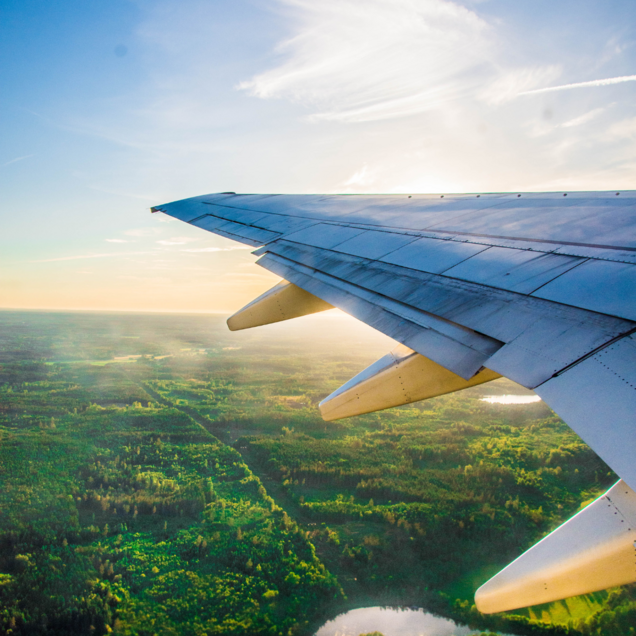Lecture series - Events summer semester 2024
| 13/03/2024 | 17:30 | Psychological aspects of sustainability transformations and climate protection | Thomas Brudermann | WebEx & HS 1 Studienzentrum |
| 11/04/2024 | 17:30 | Sustainable Aviation Fuels | Markus Lehner | WebEx & HS 2 Studienzentrum |
| 18/04/2024 | 17:30 | Photovoltaic research made in Austria - Plastics for PV modules | Gernot Oreski | WebEx & HS 2 Studienzentrum |
| 25/04/2024 | 17:30 | The EU Taxonomy Regulation: Green economic activities as a driver of sustainable transformation | Anja Rotter | WebEx |
| 16/05/2024 | 17:30 | Vehicles with different drive systems on the way to climate neutrality & circularity | Jungmeier Gerfried | WebEx & HS 2 Studienzentrum |
| 23/05/2024 | 17:30 | SkySails Power Kites - Breakthrough in high-altitude wind energy | Mark Hoppe | WebEx |
Kurzfassung
SkySails Power GmbH is the leading manufacturer of lightweight and efficient power kites that harness the untapped potential of wind at high altitudes with the aim of making a lasting difference to the impact of wind energy on the global energy transition.
SkySails Power GmbH develops and markets systems for generating electricity from high-altitude wind - so-called high-altitude wind energy systems. With this technology, SkySails is tapping into the largest untapped renewable energy potential in the world - high-altitude wind. The presentation will cover how it works, the development status, the path to market and the legal framework.
After completing his schooling in Sweden, Mark Hoppe studied politics and economics at Linköping University. He then moved back to Germany to complete a degree in Business Communication Management at the Berlin University of Applied Sciences. Today, he is responsible for Business Development and Corporate Communication at SkySails Power GmbH.
He is passionate about promoting the energy transition and has a deep understanding of the market conditions and complex political challenges in the renewable energy sector. Mark maintains strong relationships with key stakeholders, including government officials, industry leaders, associations and non-profit organizations, and is able to communicate complex policy issues clearly and concisely to diverse audiences. He is also responsible for the development and implementation of SkySails Power's public affairs strategy, strategic partnerships and business expansion in the renewable energy sector. Working closely with interdisciplinary teams, he advocates for strategic actions that support business objectives while meeting stakeholder needs.
Kurzfassung
The EU Taxonomy Regulation plays a central role in efforts to achieve a sustainable transformation in the European Union. It sets out clear criteria to determine which economic activities are considered "green" and thus contribute to achieving long-term climate and environmental goals. In this TripleN Talk, we will take an in-depth look at how the EU taxonomy works - from assessing climate risks to ensuring minimum protection standards along the supply chain. Particular attention will be paid to its practical application. Two specific examples from the automotive industry and the production of iron and steel will be used to illustrate the potential impact of the taxonomy. These examples are intended to illustrate how the taxonomy can help to promote sustainable economic activities in various sectors.
Studium in Internationaler Betriebswirtschaftslehre mit Schwerpunkt in Finance an der Wirtschaftsuniversität Wien (WU) und Masterstudium im Bereich Climate Change, Management and Finance am Imperial College London in Kooperation mit dem Grantham Institute, eines der führenden Forschungszentren für Klimawandel und Umwelt. Professionelle Erfahrung in der Corporate Finance und M&A Beratung, spezialisiert auf Projekte im Bereich Cleantech und erneuerbare Energien. Weitere Beratungs- und Researchprojekte mit Fokus auf nachhaltige Finanzierung und Greenwashing sowie die Berücksichtigung von ESG-Faktoren in den Kapitalmärkten. Seit 2023 Sustainability Consultant am ICT.
Abstract
The role of polymers in photovoltaic energy generation is generally underestimated, as they do not play an active role in energy generation itself. However, the choice of polymers has a significant influence on the properties of PV modules, such as
(1) Efficiency, as the optical properties of the encapsulation (transmittance) and the backsheet (reflection, backscattering) determine the number of photons that reach the solar cell
(2) Quality, as most premature failures are caused by poor processing parameters defined by the encapsulation properties and material incompatibilities
(3) Reliability, as most degradation modes of PV modules are directly related to polymer degradation and material interactions with polymer components.
The talk will highlight current trends in technology development, with a focus on PV modules and their material composition, debunk some myths around photovoltaics and discuss the current market situation.
Gernot Oreski studied plastics engineering at the University of Leoben and graduated in 2004. Gernot Oreski completed his doctorate at the University of Leoben in 2008. Both his diploma thesis and dissertation dealt with the possible uses of plastics in solar energy applications. In 2020, he completed his habilitation in "Physics of Polymeric Materials". His habilitation thesis "Polymers for photovoltaics: Applicability and long-term behavior" deals with the influence of the plastics used on the efficiency, quality and service life of photovoltaic modules
He began his professional career in 2004 as a research assistant at the PCCL in Leoben. From 2008 he worked as a post-doctoral researcher, from 2011 as a senior researcher, and since 2017 Gernot Oreski has continued as head of the "Smart Material Testing" department. Since 2012, he has been lecturing at the MUL (Chair of Materials Science and Testing of Plastics) on the subject of the ageing of plastics. This was followed in 2020 by a research stay at Case Western Reserve University (Cleveland, USA) at the Solar Durability Lifetime Extension Center under the direction of Prof. Roger French.
Gernot Oreski and his team at the PCCL are working on issues relating to the long-term stability of plastics under challenging climatic conditions. One special case is polymers in solar energy applications such as photovoltaics, where lifetimes of 25 years and more are guaranteed. The focus of his research work is on investigating the long-term stability and failure mechanisms of the plastics used, as well as the development and qualification of new material candidates according to the requirements profile.
Abstract
The development and commercialization of Sustainable Aviation Fuels (SAF) is of crucial importance to provide a solution for the reduction of greenhouse gas emissions in aviation for the next decades. SAFs represent a necessary, short-term bridge technology to (hybrid) electric or hydrogen-powered aircraft, which are not expected to be introduced for long-haul flights in the next 20 to 30 years. They offer significant CO2 reduction over the entire life cycle and burn cleaner with no or significantly reduced sulphur and particle emissions. The lecture will present the possibilities for the production of SAF, the development status and research requirements as well as the legal framework conditions.
13.03.2024: Psychological aspects of sustainability transformations and climate protection
Thomas Brudermann
Abstract
Sustainability and climate protection are on people's minds. However, psychology often gets in the way when it comes to implementation - whether for ourselves, in our own company or in our own country. What is behind the ubiquitous excuses against ambitious measures, and what is needed from a behavioral science perspective for a transformation towards sustainability? Thomas Brudermann's lecture addresses these questions - with a mixture of humor and the necessary seriousness.
Thomas Brudermann is an associate professor at the University of Graz. In addition to his current book "Die Kunst der Ausrede", he has authored and co-authored over 30 articles in international journals and books. Brudermann has worked at various research institutions in Austria and abroad, including the Vienna University of Economics and Business, the Japanese National Institute for Environmental Technologies, the Asian Institute of Technology and the International Institute for Applied Systems Analysis. His research focuses on the psychological aspects of innovation, sustainability transformations and climate change. In 2023, he was awarded the Eunice Foote Prize together with Annechien Hoeben for his contributions to climate communication.






